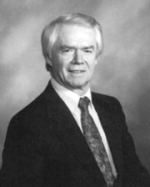|
|||||||
|
Visit The Center for Baptist Studies' Web Site at www.mercer.edu/baptiststudies |
|||||||
|
Produced by The Center for Baptist Studies, Mercer University Walter B. Shurden, Executive Editor, The Baptist Studies Bulletin Bruce T. Gourley, Editor, The Baptist Studies Bulletin Wil Platt, Associate Editor, The Baptist Studies Bulletin |
|||||||
|
I Believe . . . : Walter B. Shurden "The Supreme Religious Challenge" The Baptist Soapbox: James L. Evans "A Gospel Both Personal and Social" History of the Baptist World Alliance: Richard V. Pierard "Concern for the Whole Person: Baptist World Alliance Relief Work" Baptists, the Bible, and the Poor: Charles E. Poole "Steep Jesus, Not Sweet Jesus" Focus on Collegiate Ministry: R. Kirby Godsey "Embodying Healthy Religious Devotion" BSB Book Review: A Pilgrimage of Faith: My Story, by Henlee Hulix Barnette Reviewed by E. Glenn Hinson Dates to Note: Upcoming Events
Visit our website for regularly-updated "News and Views"
Note: To print the BSB, set your printer's left and right margins to .4 inches.
Note: You are free
to duplicate and circulate the articles in BSB or to use quotations |
|||||||
|
I Believe |
"The Supreme Religious Challenge" By Walter B. Shurden
What do Baptists, that small and noisy band of only one segment of only one of the world’s great religions, bring to the table of interfaith dialogue? Do we Baptists have anything at all of value to say? I think so, and I believe that Baptist theologian Charles Kimball said much of it back in 2002 in his deservedly popular book, When Religion Becomes Evil. I always thought it instructive to turn Kimball’s title on its head and to read his book from the point of view of When Religion Becomes Healthy. For while Kimball described some “evil” characteristics of religion in his book, he also inevitably sketched the outline of “good,” “positive,” and “healthy” religion. In his closing chapter he said, "As we have explored each of the warning signs of corrupted religion, we have seen how correctives were always present within each tradition. Our study of the pathological has helped to elucidate the healthy” (187). I fear this aspect of his book was overlooked. What does religion look like when it becomes healthy? 1. Kimball said, “Freedom of religion is a good thing. So is freedom from the religion others may wish to impose on those who differ” (25). Healthy religion is religion free from coercion. 2. Kimball said, “The uncritical mixing of religious, political, military, and economic realms in the missionary conquests . . . contradicts the cherished principle of the separation of church and state” (63). Healthy religion advocates some separation between religion and government. 3. Kimball said, “. . . blind obedience is a sure sign of corrupt religion. Beware of any religious movement that seeks to limit the intellectual freedom and individual integrity of its adherents. When individual believers abdicate personal responsibility and yield to the authority of a charismatic leader or become enslaved to particular ideas or teachings, religion can easily become the framework for violence and destruction” (72). Healthy religion protects and affirms the conscience of the individual. 4. Kimball said of Aum Shinrikyo, the religious sect that released deadly nerve gas in sixteen Tokyo subway stations in 1995, “Aum Shinrikyo provided little room for independent opinions or debate among adherents” (82). Healthy religion provides not only for independent opinions but for “debate among adherents.” 5. Kimball said, “Dangers abound when people take direction uncritically from religious authorities” (84). Healthy religion provides for the Priesthood of ALL Believers. 6. Kimball said, “The more the power and authority are focused in one or a few people, the higher the likelihood of abuse” (94). Healthy religion allows each a voice. Do you understand why I once told Charles Kimball that I thought he was unaware of how Baptist a book he had written? |
||||||
|
|||||||
|
The Baptist Soapbox: Invited guests speak up and out on things Baptist (therefore, the views expressed in this space are not necessarily those of The Baptist Studies Bulletin, though sometimes they are). Climbing upon the Soapbox this month is Jim Evans, pastor of First Baptist Church, Auburn, Alabama, and author of the popular weekly "Faith Matters" column published in the Birmingham Post-Herald.
"A Gospel Both Personal and Social"By James L. Evans
Social-gospelers have accomplished some amazing things. They helped abolish slavery in the nineteenth century. After the Civil War they helped pass child labor laws and were advocates for the poor before there was a safety net. The social gospel was at least partly involved the 1960s war on poverty, the anti-war movement during the Vietnam era, and the civil rights movement. There has always been resistance to a social application of the gospel. Evangelicals, even before they were called that, expressed suspicion about the idea of “social evil.” In the world of evangelical theology every thing depends on the individual and his or her personal decision. Salvation for the world depends on the one at a time salvation of every individual person. This is one reason evangelicals actively take on social issues such as drug and alcohol abuse, pornography, gambling, sexual practices, and abortion. All of these represent individual behaviors which evangelicals feel enormously empowered to address and condemn. And they are not entirely wrong in their concerns. What alcohol abuse, gambling and pornography have done to marriages and families is well attested. But their failure to appreciate how social forces contribute to these issues makes their efforts to combat them ineffective and in many cases just plain mean. Men and women trapped in destructive behaviors are not always helped by a just say no message of condemnation. What does help is to learn that God cares for them and is at work trying to change the situation that contributes to their misery. The way this plays out in practical terms may sound something like this. Poverty is not the result of flaws in the economy or unfairness in the market place, the evangelicals tell us. Poverty exists because individual persons make bad financial decisions. Obviously there is some truth to this claim, but it does not account for all poverty. The creation and distribution of wealth, jobs, education, and so forth are social forces that have the power to create and maintain poverty. The failure to understand the social sources of poverty restricts our ability to do anything about the effects of poverty. Our effort to help the poor gets reduced to mere acts of charity. And while charity may help in the short run, it cannot break the forces that create and sustain poverty in the first place. The apostle Paul understood this. He wrote that our battle is not against flesh and blood, but rather with powers that lie beyond the reach of individual decision. Ideally we should be able to hold both pieces together. Spiritual truth and discipline begin as individual decisions, but they survive and thrive because of the support of a believing community. We may see ourselves as lonely pilgrims on a journey of faith, but if we look around, the traffic is pretty heavy on the road we travel. Frightening powers of hate and greed and prejudice thrive in our society and have an impact on us greater than our individual efforts to resist them. Only a force of equal or greater strength will be able to stare these demons down. I believe that such a force exists in a believing community that is committed to both personal piety and social justice. Consequently, a promoter of a social gospel I will remain.
|
|||||||
|
|||||||
| BWA |
History of the Baptist World Alliance: The Baptist World Alliance is celebrating its 100th anniversary this year. Richard V. Pierard is Stephen Phillips Professor of History, Gordon College, Wenham, Massachusetts and Professor of History, Emeritus, Indiana State University. The author of numerous books and articles, Dick is the general editor of the upcoming Baptists Together! 1905-2005: Centennial History of the Baptist World Alliance. Learned and well traveled, he is an ecumenical Christian with firm Baptist convictions.
"Concern for the Whole Person: Baptist World Alliance Relief Work"By Richard V. Pierard
This is the second essay reflecting on the history of the Baptist World Alliance, following the theme of “Ecumenism Baptist-style." Although the BWA had been founded in 1905 to bring Baptists closer together, World War I put an enormous strain on these relations. Assisting in post-war reconstruction brought Baptists back together. The Executive Committee, in October 1919, decided to send a survey team comprised of American (Northern) Baptist Charles A. Brooks and British Baptist J. H. Rushbrooke to the European continent to renew contacts with Baptists and determine the needs there. They reported on July 20, 1920 to the Conference on Post-War Needs that the BWA had organized in London. Their report shaped BWA relief policy, which included giving material assistance to needy people, strengthening theological facilities, apportioning cooperative efforts with local European Baptists among the various foreign mission boards, and creating a Commissioner for Europe to oversee relief work. Rushbrooke, a man with wide ecumenical connections and much experience in peace work, assumed this post, and the relief activities in Europe over the next few years rejuvenated the BWA and sharpened its international focus. This social vision was renewed after World War II. In 1943 the Executive Committee formed a committee on World Emergency Relief to coordinate Baptist efforts in the devastated countries and provide guidance to the constituent bodies in carrying out work. Over the next two years the BWA followed through in planning and working with denominational and other relief endeavors like CARE. In 1946 General Secretary Walter O. Lewis was named the BWA’s “special representative” to deal with Baptists in Europe on relief matters, and two years later he was reassigned to spend full time on this effort. Large amounts of money were channeled to the German Baptists, and a staff person oversaw efforts in Occupied Germany. The BWA was deeply involved in the resettlement of Displaced Persons in the US and Canada, and Adolf Klaupiks, a Latvian Baptist pastor and DP himself, headed the effort under the supervision of the BWA Relief Committee, whose president was Memphis pastor R. Paul Caudill. When the DP program ended, the BWA efforts were redirected to refugee work and direct aid to needy people in various countries. As the sums of money for relief needs flowing into the BWA office steadily increased, a reorganization occurred in 1961 and Klaupiks was named Coordinator of Relief. The
endeavor was brought under more direct control in 1968, when North American
Baptist Frank Woyke was named an associate secretary and world relief was put
under direct administrative supervision. In the 1970s it was made a
“Division” and its head a “Director.” In1981 the program was renamed Baptist
World Aid, and it now receives annually nearly a million dollars in
contributions for relief and development work. The current director is Paul
Montacute from England. Following the recent tsunami disaster, $660,000 in
donations flowed into BWAid and is now being channeled to Baptist efforts in
the stricken areas. |
||||||
|
|||||||
|
Baptists, the Bible, and the Poor: Charles E. Poole is a Baptist minister with Lifeshare Community Ministries in Jackson, Mississippi where he delights in ministering alongside the poor. "Chuck" Poole, a provocative preacher and servant pastor, served Baptist churches for twenty-five years. Among the churches he has served are First Baptist Church, Macon, GA, First Baptist Church, Washington, DC, and Northminster Baptist Church, Jackson, MS.
"Steep Jesus, Not Sweet Jesus"By Charles E. Poole
|
|||||||
|
Focus on Collegiate
Ministry: As the moderate Baptist movement
continues to grow and expand, emphasis on collegiate ministry is slowly taking
shape at a time when traditional Baptist Student Union / Baptist Campus
Ministry models are facing unprecedented challenges. This series, featuring
writers who know Baptist collegiate ministry, focuses on the future of
moderate Baptist collegiate ministry. This month's contributor is R. Kirby
Godsey, President of Mercer University. "Embodying Healthy Religious Devotion" By R. Kirby Godsey
|
|||||||
| Book Review |
BSB Book Review: BSB presents a review of A Pilgrimage of Faith: My Story, by Henlee Hulix Barnette. E. Glenn Hinson,
Professor Emeritus of Baptist
Theological Seminary in Richmond, Senior Professor of Church History and
Spirituality at Baptist Seminary of Kentucky, Visiting Professor of Church
History at Lexington Theological Seminary, and Adjunct Professor of Church
History at Louisville Presbyterian Seminary, reviews
A Pilgrimage of Faith, published by Mercer University Press, 2004.
Not many nonagenarians will tell their life story with the clarity and
precision with which Henlee Barnette has told his at age ninety-one. Not
many, of course, will have such a story to tell, either. Nor will many be
gifted with the sense of humor which makes this autobiography so engrossing
that once you start reading it, you can hardly put it down. |
||||||
|
|||||||
|
Note |
Dates to Note
February 21-23, William H. Self Preaching Lectures, Cecil B. Day Hall, Mercer University, McAfee School of Theology, Atlanta, GA. Speaker: Joanna M. Adams, Pastor of Morningside Presbyterian Church. Topic: "To Speak of God: The Challenge and Purpose of Preaching." For more information, go to www.mercer.edu/calendar.
February 23-26, "Current" Young Leaders Retreat, First Baptist Church, Asheville, NC. Contact mmcoy@thefellowship.info.
February 25-26, Mainstream Baptist Network Convocation, Atlanta, GA. Theme: "Envisioning a New Day in Baptist Life." For more information and to register, go to www.mainstreambaptists.org/events/convocation4.htm.
March 4-5, CBF of Georgia General Assembly, First Baptist Church, Rome, GA. Dr. Charles E. Poole, speaker. For more information go to www.cbfga.org.
June 2-4, Baptist History and Heritage Society Annual Meeting. Samford University, Birmingham, Alabama. Theme: "Women in Baptist History."
June 30 - July 1, CBF National General Assembly. Gaylord Texan Resort and Convention Center, Grapevine, TX.
July
27-31, 2005, Centennial Congress of the Baptist World Alliance,
Birmingham, England. To register email
Congress@bwanet.org , phone 703.790.8980, or
fax 703.893.5160. |
||||||
|
|
Baptist Myths: A New Pamphlet Series A
series of eleven pamphlets that address negative perceptions held towards
Baptists in popular American culture. These pamphlets are suitable for
individual study, church classes, and academic courses. They are jointly
published by the Baptist History and Heritage Society, The Center for Baptist
Studies of Mercer University, and the Whitsitt Baptist Heritage Society.
Editor: Doug Weaver; Associate Editors: Charles W. Deweese & Walter B.
Shurden. |
||||||
|
|
|
||||||
|
|
If you do not wish to receive BSB any longer, please Click Here to unsubscribe. |
||||||

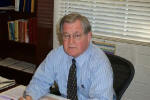 I believe . . .
I believe . . .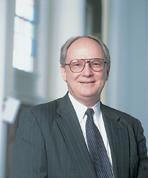
 A reader of my weekly Birmingham Post-Herald
column chided me recently for promoting a social gospel. It’s a
complaint I have heard before. Going all the way back to my ordination, one of
the pastors on the council warned me about the dangers of the social gospel.
It was only later that I learned what it meant. The social gospel is the idea
that the church should make social applications of the teaching of Jesus
Christ.
A reader of my weekly Birmingham Post-Herald
column chided me recently for promoting a social gospel. It’s a
complaint I have heard before. Going all the way back to my ordination, one of
the pastors on the council warned me about the dangers of the social gospel.
It was only later that I learned what it meant. The social gospel is the idea
that the church should make social applications of the teaching of Jesus
Christ.
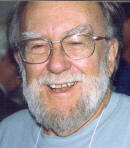
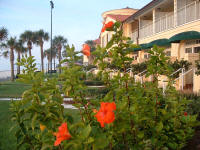

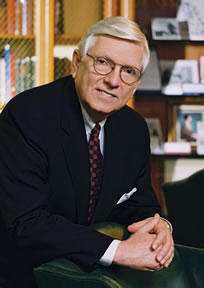 College students, like the societies and communities from which they come, are
being bombarded with bad religion. In our time, religion has become a major
social malady and none of the great world religions has been able to avoid
this treacherous demise. It is not uncommon for the college experience to
shine light on the strains of manipulation and even control that have become
so persuasive in religious training. Young minds often decide that no religion
at all is better than the mental and moral control that has been fostered
under the guise of mindless devotion to a certain religious ideology.
College students, like the societies and communities from which they come, are
being bombarded with bad religion. In our time, religion has become a major
social malady and none of the great world religions has been able to avoid
this treacherous demise. It is not uncommon for the college experience to
shine light on the strains of manipulation and even control that have become
so persuasive in religious training. Young minds often decide that no religion
at all is better than the mental and moral control that has been fostered
under the guise of mindless devotion to a certain religious ideology.